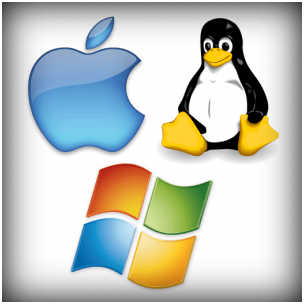What is an Operating System?
- Operating system is a system software which is required in order to run application programs and utilities. It perform interaction between application programs and all the hardware of the computer.
- Examples of operating system are UNIX, MS-DOS, Windows-NT/2000, OS/2, MS-Windows - 98/XP/Vista, android and Mac OS etc.
 |
| Different-2 Operating Systems |
- A computer system has many resources (hardware and software), which are required r to complete different-2 task.
- Input / output equipment, memory, file storage space, CPU etc. are the most frequently needed resources.
- The operating system serves as manager of the above-mentioned resources and assigns them to specific programs and users whenever appropriate to perform a specific function.
- Operating system work as resource manager i.e. it can manage the resource of a computer system internally or externally. The resources are processor, memory, files, and I/O devices.
- In simple terms, an operating system work as interface between the user and the hardware/machine.
Related topics to "Overview of Operating Systems"
- Definition of Operating Systems.
- Types of Operating Systems.
- Operating System Services.
- User operating system interface.
- System Calls and Types of System Calls.
- System Programs.
- Operating System Structure.
- Virtual Machine.
- Benefits of Virtual Machine.
Evolution of Operating Systems
Types of Operating Systems





0 Comments: